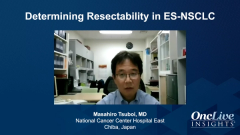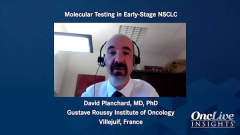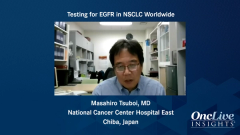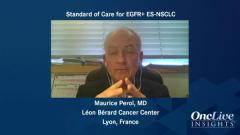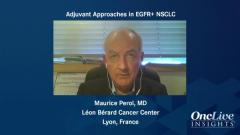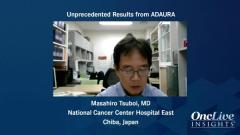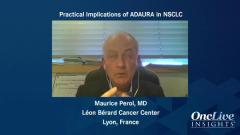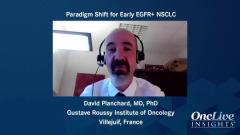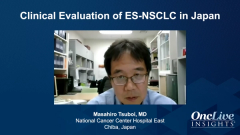
Testing for EGFR in NSCLC Worldwide
Episodes in this series

Masahiro Tsuboi, MD: I presented this issue at ESMO [European Society for Medical Oncology meeting] in 2019. The ADAURA trial showed that frequency of the EGFR mutation appears to be higher in Asia, with 28% vs 16% in non-Asia. In females, it is more frequent—31% vs 14% for males—in patients with stage IB to IIIA non–small cell lung cancer. The higher frequency in these 2 subgroups has also been observed in the advanced setting. The frequency of the more common mutation in combination with uncommon mutation is very low. The frequency of EGFR mutation, 44%, should be interpreted with caution due to the difference between countries in local practice pre-screening, which may confound the frequency of the reported mutations.
EGFR exon 19 deletion occurred more frequently in the American and European populations compared with Asia and Pacific regions. In the United States, exon 19 deletion is 70% and 62% in Europe. On the other hand, in Asia, it’s 51%. The frequency of the EGFR exon 20 insertion mutation may be underrepresented, as the patients who are known to be exon 20 insertion-positive have not been screened by this trial. In early-stage lung cancer, about 30% to 40% of patients in Asia have the EGFR mutation. In the Caucasian population, the incidence is around 15% in such early-stage cancers.
David Planchard, MD, PhD: For EGFR, we test all patients with advanced-stage disease, particularly for adenocarcinoma. We have questions about squamous cell carcinoma because it’s infrequent to have squamous cell carcinoma with an EGFR mutation. For adenocarcinoma, particularly with non- or light smokers, patients should be systematically tested because we have a high incidence for EGFR-mutated patients in this case. This is for the advanced-stage metastatic disease. For the locally advanced stage, they go to surgery. There is no recommendation because we don’t have the ability to treat these patients with targeted therapy. We just had recent data with the ADAURA trial that might push the patient with this third-generation EGFR TKI [tyrosine kinase inhibitor]. Otherwise, we should not test in this population.
For the testing in this population, there are different types of techniques, particularly regarding the tissue. If you want to only test for EGFR mutation with highly sensitive and specific techniques, it can be done by PCR [polymerase chain reaction]. Otherwise, it’s with the NGS [next-generation sequencing] panel. The best is to test by NGS panel because you don’t have only the EGFR testing, but also other molecular alterations at the same time. If you just want to know if the patient is EGFR-mutated or not, there is a specific test, and it can be done in most countries.
Transcript Edited for Clarity


